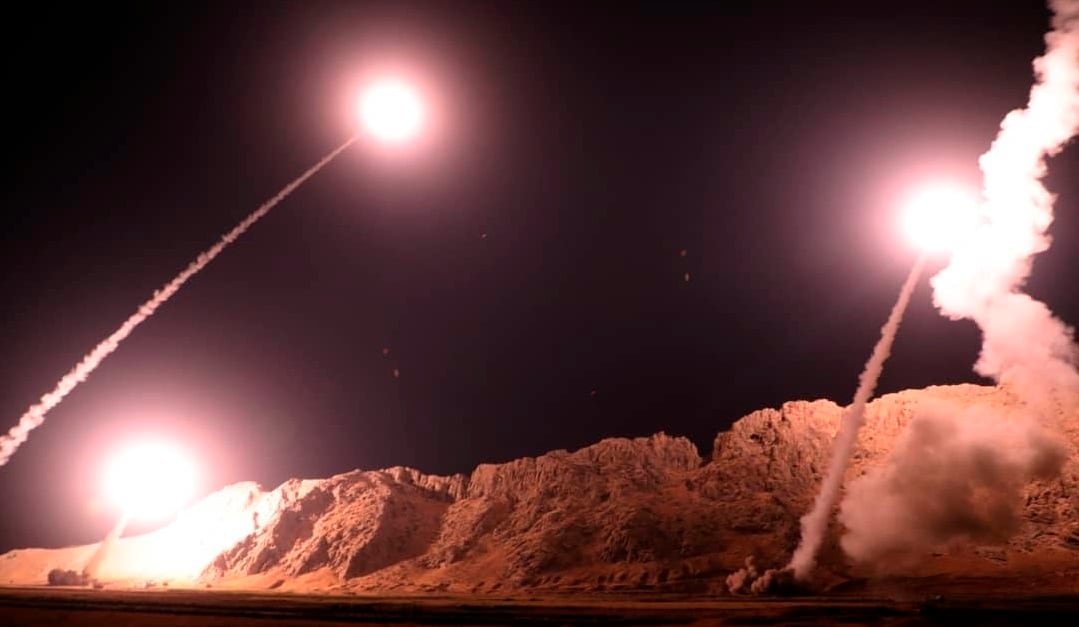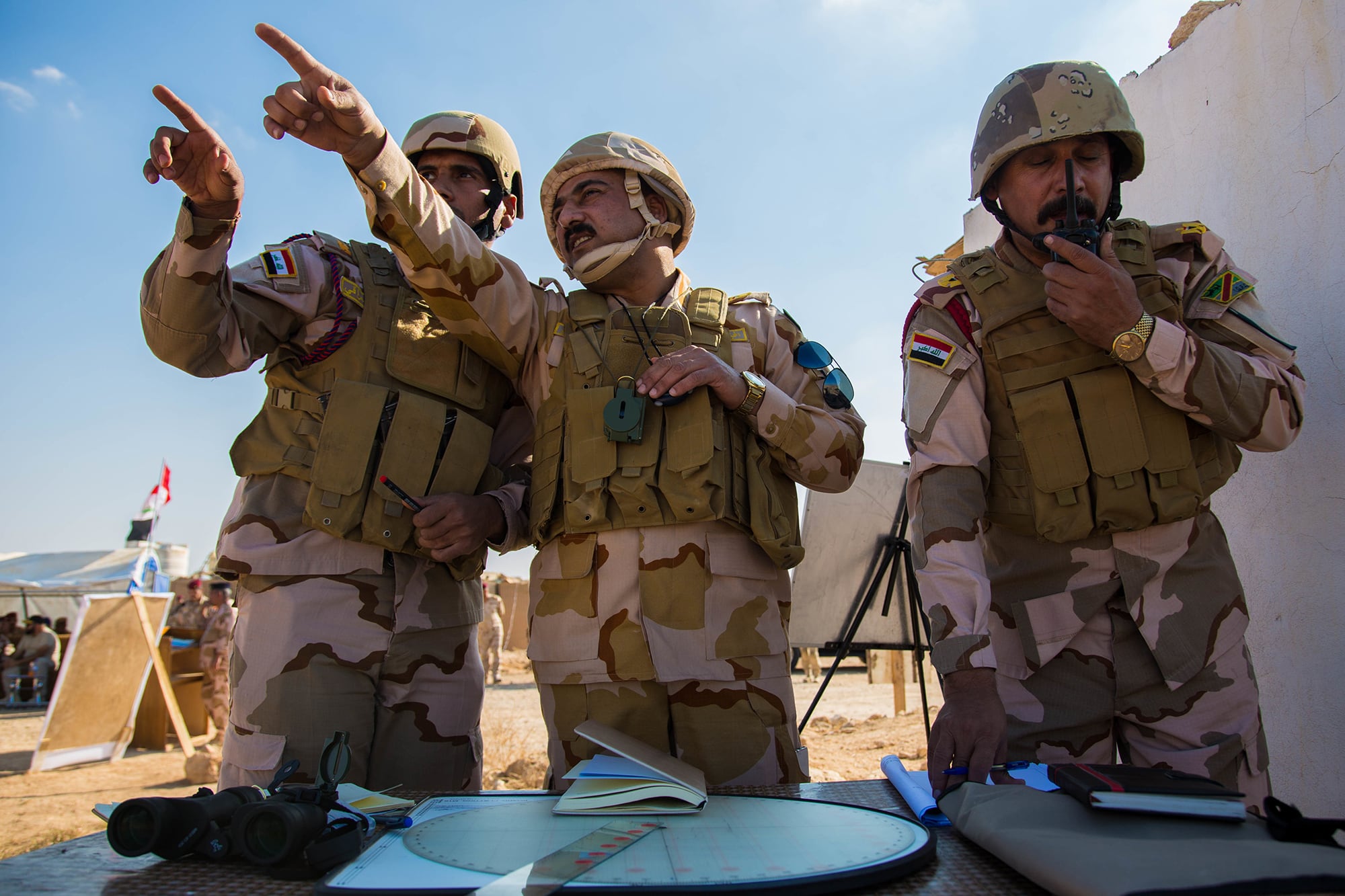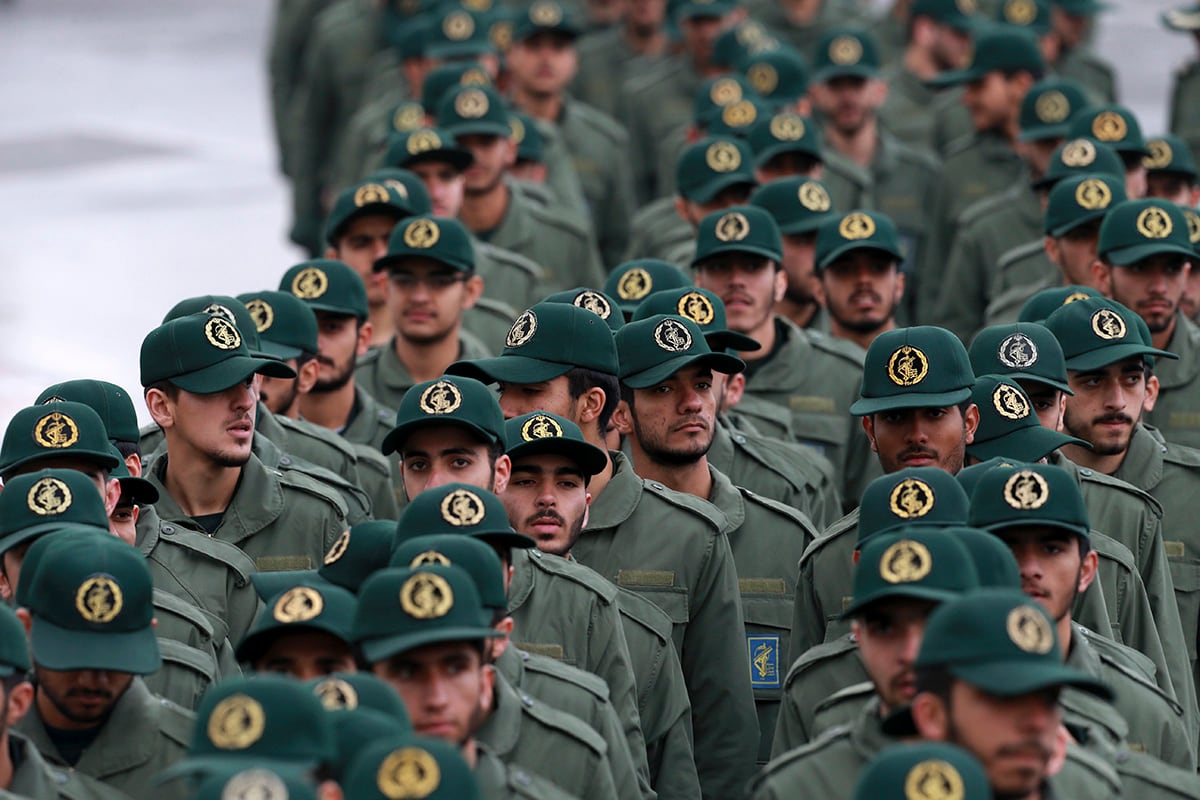With no apparent U.S. casualties and a prior attack warning from Iran, there is cautious optimism inside and outside the Pentagon that Iran’s missile barrage into Iraq Wednesday night was a measured response and a turn signal for an off-ramp.
That sentiment was bolstered Wednesday morning by President Donald Trump’s address to the world saying that Iran seemed to be standing down and that the U.S. seeks peace with willing nations.
Still, Trump warned that the regime still faces economic sanctions and potential military reprisals if it continues aggression in the region.
“Peace and stability cannot prevail in the Middle East as long as Iran continues to foment violence, unrest, hatred and war,” Trump said in an address from the White House.
“The civilized world must send a clear and unified message to the Iranian regime that (their) campaign of terror, murder and mayhem will not be tolerated any longer.”
RELATED

The commander in chief confirmed earlier reports that no U.S. personnel were injured in the missile attacks, which struck service member housing units at al-Asad airbase and Erbil International Airport. He also added that “only minimal damage was sustained and our military bases.”
Flanked by the Joint Chiefs of Staff and Defense Secretary Mark Esper, Trump in his Wednesday speech said that the American public should be “extremely grateful and happy” that the Iranian response resulted in no casualties, which he credited to the United States’ “great military and equipment” as well as defense budget increases backed by his administration in recent years.
He offered no indication that an American military response was imminent. But he did say he would ask NATO to “become much more involved in the Middle East process.”
Notification
Iraqi Prime Minister Adel Abdul-Mahdi said he received notification from Iran just after midnight that its retaliation “was starting or would start soon” and would focus only on U.S. positions. Finland and Lithuania’s militaries, which had personnel at one of the targeted bases, said they received information about an imminent attack and had time to move to shelters or leave the base.
(Wednesday afternoon, Defense Secretary Mark Esper pushed back on that notion, telling reporters gathered at the Pentagon that U.S, early warning systems picked up the incoming missiles well in advance, providing U.S. and coalition forces adequate time to take appropriate force protection measures..
Once that happened, it was the U.S. that warned Iraq, Esper said.)
Given the results of the Iranian attack, some Pentagon leaders believe that an opportunity may now exist to ease tensions between Iran and the U.S., which ratcheted up the first week of January with a U.S. drone strike that killed Iranian Quds Force leader Qassem Soleimani.

But Iran’s Supreme Leader Ayatollah Ali Khamenei warned the attack was not enough during a speech in Qom Province, Iran, following the ballistic missile attack, Iran state-run Islamic Republic News Agency reported.
“They were slapped last night, but such military actions are not enough. The corruptive presence of the U.S. in the West Asian region must be stopped," Khamenei said, according to IRNA.
Khamenei said the U.S. must leave the region, IRNA reported.
Iran might now turn to its proxies ― including Iraqi Shia militias like the Kataib Hezbollah, blamed for rocket strikes on Iraqi installations housing U.S. and coalition troops ― but some inside the Pentagon feel that an off ramp to de-escalation could still be available even if there are such attacks, depending on what they are.
After Iran fired off its missiles ― U.S. officials say 15; Iraqis say 22 ― both President Donald Trump and Iranian Foreign Minister Javad Zarif tweeted out seemingly calming messages.
“All is well! Missiles launched from Iran at two military bases located in Iraq. Assessment of casualties & damages taking place now,” Trump tweeted. “So far, so good! We have the most powerful and well equipped military anywhere in the world, by far! I will be making a statement tomorrow morning. “
“Iran took & concluded proportionate measures in self-defense under Article 51 of UN Charter targeting base from which cowardly armed attack against our citizens & senior officials were launched,” Zarif tweeted. “We do not seek escalation or war, but will defend ourselves against any aggression.”
Ball is in the president’s court
Any hopes for for de-escalation depend largely on what Trump, as commander in chief, decides.
Former U.S. Central Command leader Joseph Votel told Military Times Wednesday morning that, with no apparent U.S. casualties, the barrage of missiles was an way for Tehran to hit back and save face without provoking further retaliation from the U.S.
“It would seem that way given that it does not appear they inflicted US casualties,” said Votel, a retired Army general who also lead Joint Special Operations Command and U.S. Special Operations Command. “I believe they are much more savvy and calculating with their actions than we might give them credit for. ... I think they are thinking about internal and external audiences; being seen as decisive; yet, keeping the situation open for both escalation and de-escalation.“
Votel said that “hopefully there can be dialogue of some sort to de-escalate. Seems like we may have an opportunity.”
But that, he said, largely depends on how the U.S. responds.
“I think our response will dictate what comes next.”
RELATED

Ilan Goldenberg, director of the Middle East Security Program at the Center for a New American Security, also believes the Iranian government hoped to avoid American casualties with its response.
“Iran needed to respond publicly and it has managed to do so without killing Americans or triggering a broader war. The fact that it informed Iraq of the attack in advance likely knowing Iraq would inform the U.S. is also a sign they didn’t want to kill people,” Goldenberg said.
“It is a dramatic and historic move as it’s been a very long time since U.S. forces have been directly struck by ballistic missiles. But on the other hand if this is the extent of the response, the smartest move for the U.S. would be to stand down,” he added. “We should also keep in mind that this is likely not the extent of the retaliation. Some may play out in the days ahead. Other responses may take months or years.”
Becca Wasser, a senior policy analyst with the Rand Corporation, said that Iran is very good at coming up to an American “red line” but not crossing it — in this case, American casualties. But she was skeptical military officials in Tehran could have confidently known U.S. forces would be safe when they launched the missiles.
“Pinpointing an exact location where they would hit would be fairly difficult. So I think there’s a chance that Iran hoped they wouldn’t end up with any U.S. casualties. I don’t think they could have entered into undertaking this attack knowing that was 100 percent certain to happen,” Wasser said. “Iran is very good at remaining under the threshold of these red lines when it seeks to. So here, it got lucky that ultimately the price that was paid was paid by the Iraqis yet again.”
The Iraqis are hoping for calm.
“We have called, and we call on all, to exercise restraint, prevail over the language of reason, adhere to international covenants, respect the Iraqi state, and the decisions of its government, and help it to contain and overcome this serious crisis threatening it, the region, and the world with a devastating, comprehensive war,” a spokesman for Iraqi Prime Minister Abu Madhi tweeted.
This story, which is fluid and will be updated, contains content from The Associated Press.
Howard Altman is an award-winning editor and reporter who was previously the military reporter for the Tampa Bay Times and before that the Tampa Tribune, where he covered USCENTCOM, USSOCOM and SOF writ large among many other topics.
Aaron Mehta was deputy editor and senior Pentagon correspondent for Defense News, covering policy, strategy and acquisition at the highest levels of the Defense Department and its international partners.
Shawn Snow is the senior reporter for Marine Corps Times and a Marine Corps veteran.
Meghann Myers is the Pentagon bureau chief at Military Times. She covers operations, policy, personnel, leadership and other issues affecting service members.




